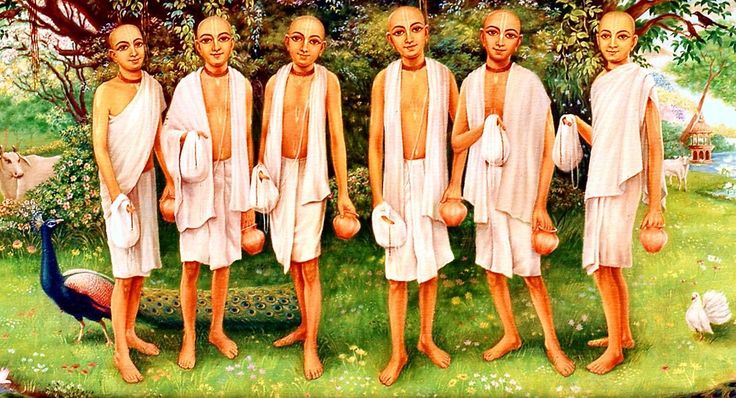Introduction
In a world where pleasure and indulgence are often glorified, Krishna Consciousness offers a radically different perspective — one that leads to deeper fulfillment beyond temporary thrills.
At the heart of this spiritual journey lies a critical choice: to seek lasting joy through devotion or remain trapped in the cycle of fleeting sense gratification.
This article explores how Krishna Consciousness and sense gratification are fundamentally opposed, and how one can effectively navigate this conflict.
The Conflict Between the Two Paths
Krishna Consciousness is based on the understanding that we are not the body but the eternal soul (ātman), a part and parcel of Krishna. The soul’s real happiness comes not from indulging the body but from lovingly serving Krishna. In contrast, sense gratification convinces us that happiness lies in enjoying the senses — whether through food, sex, possessions, or status. While these may give fleeting pleasure, they ultimately leave us empty and bound to the cycle of repeated birth and death.
Śrīla Prabhupāda explains:
“Sense gratification is not the means for happiness. Real happiness comes from Krishna consciousness.”
— Bhagavad-gītā As It Is, 2.64, Purport
The more we gratify our senses for personal pleasure, the more we become entangled in illusion. But when we engage those same senses in Krishna’s service, they become purified. Thus, Krishna Consciousness and sense gratification move in opposite directions — one elevates the soul, and the other entangles it.
Lives of the Goswamis and Saintly Examples
The Six Goswāmīs of Vṛndāvana — Rūpa, Sanātana, Raghunātha dāsa, Jīva, Gopāla Bhaṭṭa, and Raghunātha Bhaṭṭa — all came from wealthy or prestigious backgrounds. Yet, they voluntarily gave up opulence, fame, and comfort to live simple, renounced lives immersed in devotional service.

Raghunātha dāsa Gosvāmī, born into an aristocratic family, later survived on just a few drops of buttermilk a day at Rādhā-kuṇḍa. Rūpa and Sanātana Goswāmīs were ministers in the Muslim government but walked away from high office to serve Lord Caitanya. Jīva Goswāmī, a great scholar, used his brilliance to write deeply philosophical works on bhakti.
Their renunciation wasn’t forced but arose naturally from a taste for divine service. Their lives are testimonies to the principle: when one tastes Krishna’s sweetness, the craving for worldly enjoyment dissolves.
Dealing with Sense Gratification
While the ideal is to be free from all material desires, most spiritual practitioners still struggle with them. Here’s how to deal with sense gratification wisely:
1. Don’t Suppress — Engage
Artificial repression often backfires. Instead of suppressing the senses, engage them in Krishna’s service. As the Bhagavad-gītā (2.59) states:
“Though the embodied soul may be restricted from sense enjoyment, the taste for sense objects remains. But, ceasing such engagements by experiencing a higher taste, he is fixed in consciousness.”
This verse emphasizes that simply restraining the senses is not enough. The mind still craves material pleasures, and suppressing those desires leads to frustration. True spiritual progress comes when one engages the senses in higher activities that provide greater satisfaction — activities such as devotional service to Krishna. By shifting our focus from material sense gratification to spiritual endeavors, we can diminish the allure of lower tastes.
2. Avoid triggers
Stay away from environments, media, or associations that provoke material desires. Yukta-vairāgya — intelligent detachment — means knowing what to avoid and what to use for Krishna.
3. Be Patient and Consistent
Progress takes time. The conditioning of many lifetimes won’t vanish overnight. Keep practicing sincerely; the heart will gradually become purified. With persistent effort, our attachment to material desires will diminish, and our attraction to Krishna’s divine qualities will naturally increase, leading us toward true freedom and fulfillment.
4. Seek Strength in Devotee Association
Stay close to devotees who inspire and guide you. Their presence and words offer strength during moments of weakness.
“Association with devotees means association with the Lord. The devotee who makes this association develops the consciousness for rendering service to the Lord, and then, being situated in the transcendental position of devotional service, he gradually becomes perfect.”
— Śrīmad-Bhāgavatam 3.25.25
5. Daily Regulated Sādhanā
A fixed daily schedule for chanting, reading scripture, deity worship, and prasādam purifies the senses and keeps the mind focused. Regulation brings stability and strength. By sticking to a routine, we train our mind to prioritize spiritual practice, reducing the influence of distractions and strengthening our connection to Krishna. In contrast to the indulgence of sense gratification, which leaves us unfulfilled, a regulated sādhanā nourishes the soul, bringing lasting satisfaction. Over time, this consistency will deepen our devotion and help us maintain a steady, unwavering spiritual path, gradually diminishing the pull of material desires.
Conclusion
Krishna Consciousness and sense gratification are like light and darkness — they cannot coexist. The path of bhakti is not about repression but about fulfillment. By engaging our senses in Krishna’s service, they transform from obstacles into instruments of liberation.
Rather than battling the senses, we can lovingly redirect them toward Krishna — our eternal well-wisher. In doing so, we taste a happiness that is deep, enduring, and divine.
